“This ball of liberty, I believe most piously, is now so well in motion that it will roll round the globe, at least the enlightened part of it, for light & liberty go together. It is our glory that we first put it into motion.”
~ Thomas Jefferson to Tench Coxe, June 1, 1795, Founders Online
A New Diplomatic Order
Shaping the Modern World
The Franco-American Alliance introduced a new political model based on America’s revolutionary heritage of individual liberties, rights, and prosperity.
America, the first modern country governed by “we, the people”, sought to spread its values. Diplomacy, less constrained by power politics, was transformed.
America promoted democracy in France through Jefferson’s advice to Lafayette on the 1789 Declaration of the Rights of Man.

Marquis de Lafayette’s Declaration of the Rights of Man and of the Citizen with emendations by Thomas Jefferson, Manuscript, courtesy of Library of Congress
France’s Declaration inspired the 1948 Universal Declaration of Human Rights.
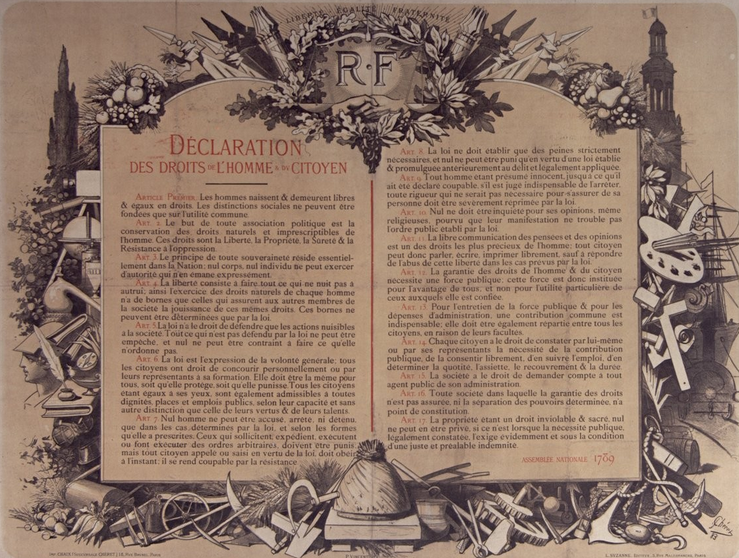
Déclaration des Droits de l'Homme et du Citoyen by Jules Chéret, courtesy of Bibliothèque Nationale de France
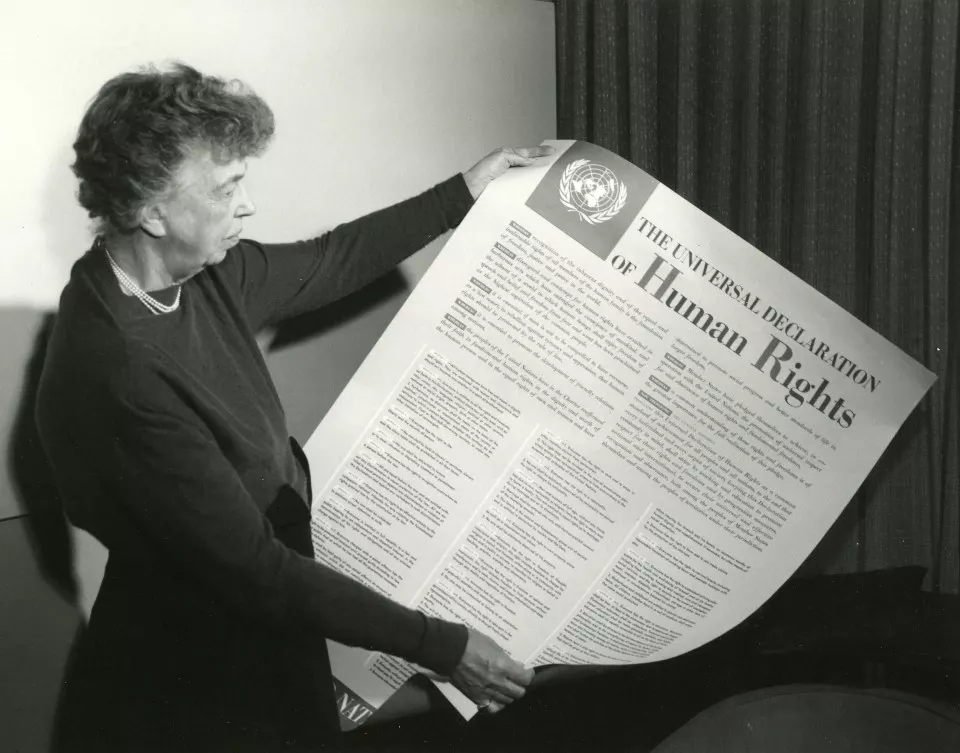
Eleanor Roosevelt holding the Universal Declaration of Human Rights, 1949, courtesy of UN photo
The French Revolution, a tragedy for King Louis, transformed France into a defender of rights and democratic values.
Globally, the 1778 Alliance’s success encouraged the spread of democracy, also inspiring revolutions.
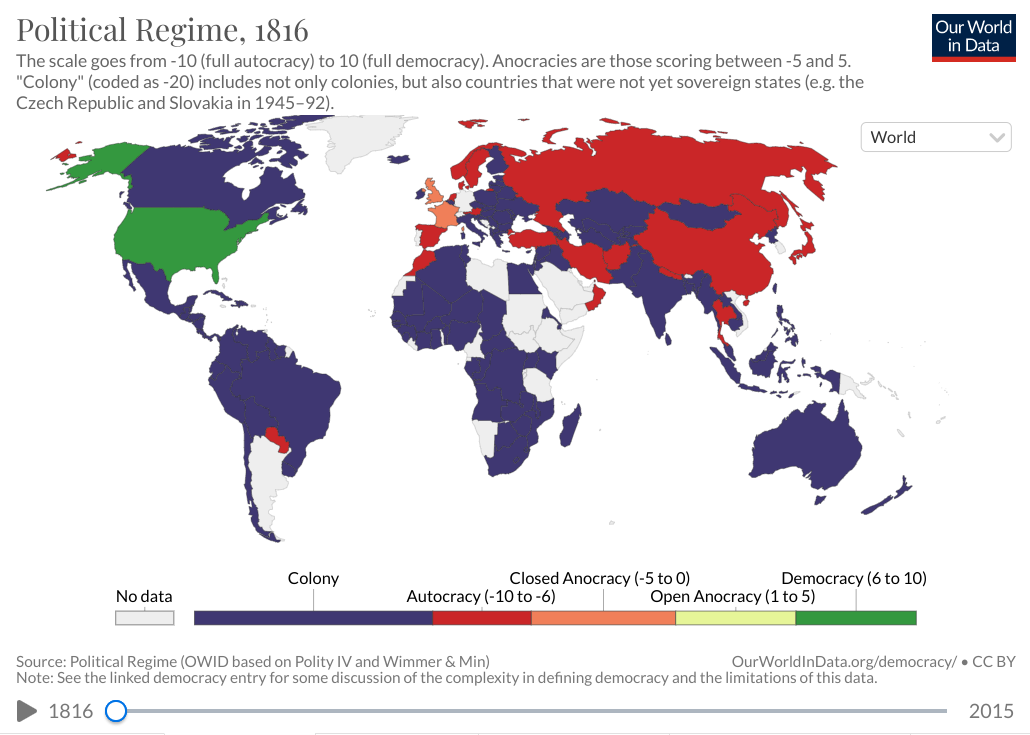
Political Regime, 1816, courtesy of Our World in Data
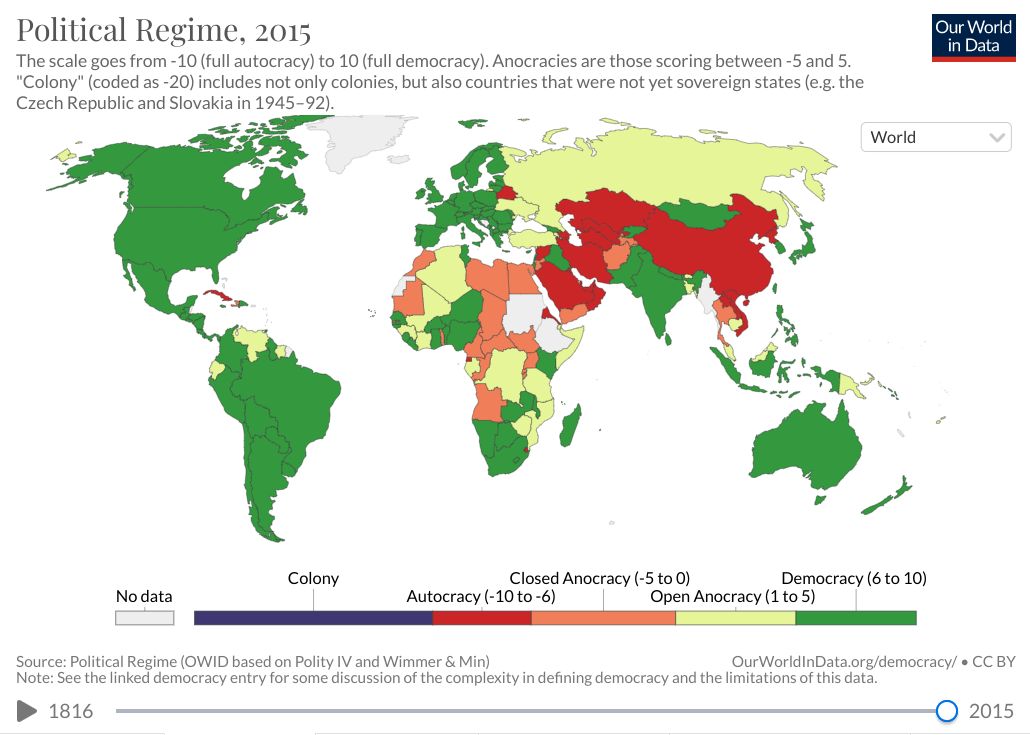
Political Regime, 2015, courtesy of Our World in Data
Using its ideals and trade as diplomatic tools, America, emphasizing soft power, has reshaped diplomacy.
Champions of liberty
Despite their shadow sides (imperialism, slavery…), France and America see the best of themselves and of each other through the 1778 alliance.
Like the monuments symbolizing Franco-American friendship, the alliance reminds them of their role as champions of liberty.
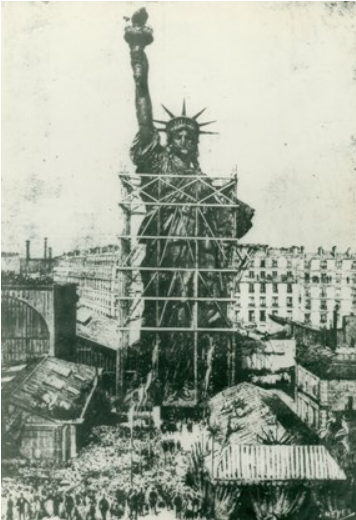
Statue of Liberty, 1881, courtesy of the National Park Service
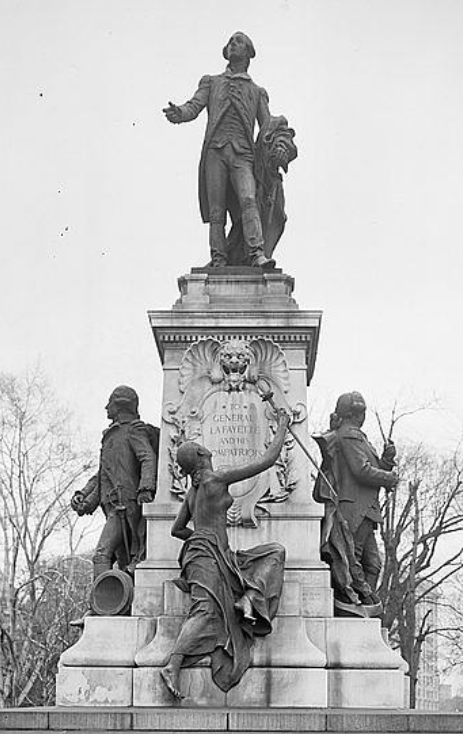
Statue of Lafayette, 1891, Washington, D.C., courtesy of Library of Congress
After the joint intervention in Libya (2011), President Obama highlighted the Franco-American alliance’s continued relevance.
Obama Honoring the US-France Alliance, courtesy of the White House
“We have been Contemporaries & fellow-labourers in the cause of liberty, and we have lived together as Brothers should do—in harmony & friendship.”
~ George Washington to Comte de Rochambeau, February 1, 1784, Founders Online
The 1778 Franco-American Alliance enabled America's independence and shaped its foreign relations.
It ushered in a new diplomatic era marked by the rise of the United States and international debates revolving around democratic values, trade, and freedom.